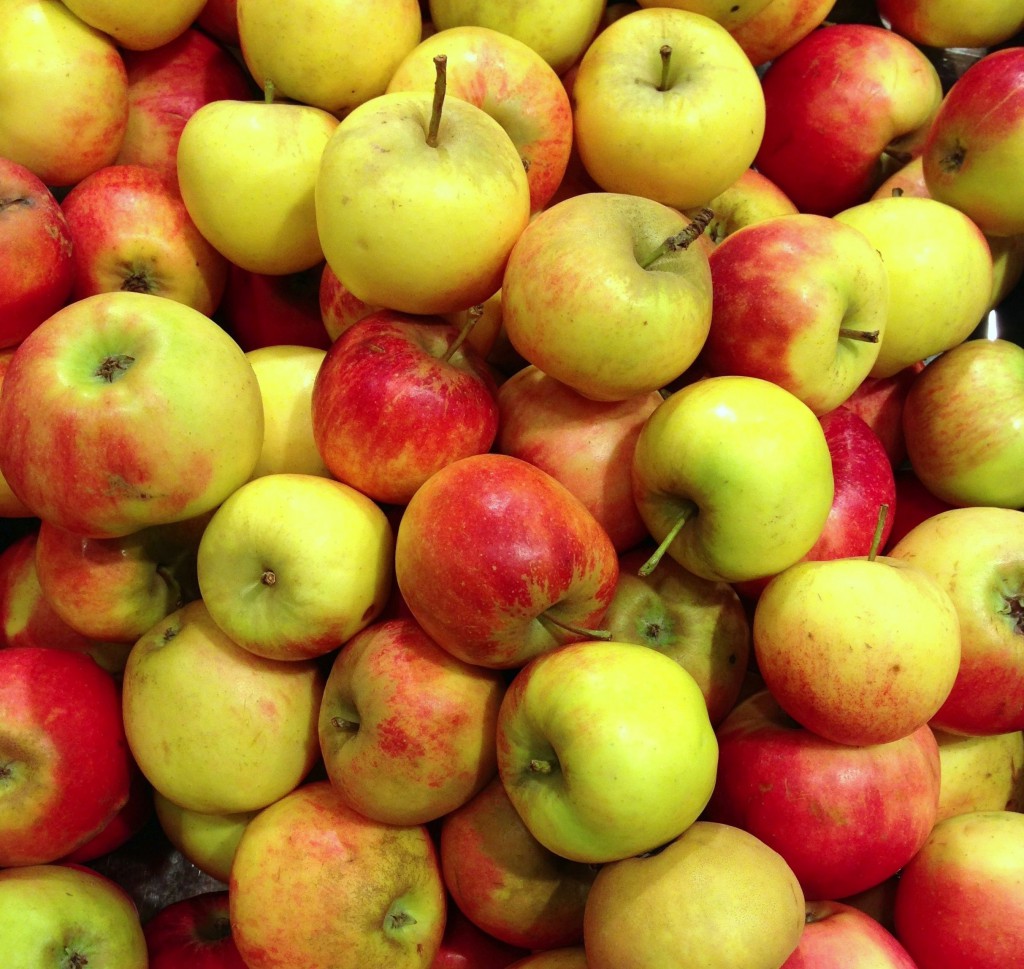 Whew, last week was a hectic one, which explains the eight days without a new blog post. This being my third blog week I’m feeling pretty guilty. Blogger’s guilt, I guess.
Whew, last week was a hectic one, which explains the eight days without a new blog post. This being my third blog week I’m feeling pretty guilty. Blogger’s guilt, I guess.
At the same time I was kind of thankful for a little more thinking time to write this blog post. I knew I still owed you the follow up on my food dos and don’ts.
After showing you what I usually eat I had to come up with a list of no-go foods. This might sound like an easy task for someone with fructose malabsorption, but it was actually much harder than I thought it would be. Somehow I found it more difficult to list the food I try to avoid than the food I eat regularly. But why is that? Is it some sort of repression or have I just gotten completely used to a routine diet low in fructose? I’m not sure, but it is only now that I realize how little I miss all the foods on my no-go list. I kind of stopped complaining about all the foods that ‘I’m craving badly but can’t have’, ‘that are forbidden’, ‘that are so difficult to avoid’, bla bla. Instead, I’m pretty much content with all the foods I can have and can indulge in. (Which doesn’t mean I’m about to stop complaining about all the crap the food producers put in our food!).
For my list I needed to do some research on my own nutrition habits. What do you do when you’re having trouble remembering the foods you used to buy? Exactly, find a supermarket and browse the aisles. That’s what I did. I wandered through the supermarket with the sole purpose of looking for foods I hadn’t bought in a long time. The main observation I made, which I hadn’t previously realized, was that the first and seemingly most important thing one generally encounters in a German supermarket are fruits and vegetables. Apples, carrots, egg plants, tomatoes by the dozens. As ironic as it may sound, I’ve stopped noticing this section. Usually the only stop I make in this department is for salad. That’s it. Everything else, I’ve been ignoring. There goes another example to show how radically fructose malabsorption changes our lives and how adaptable we are in our lifestyle.
In addition to my research at the supermarket I had a look at other do-not-touch-lists by nutritionists and other bloggers suffering from fructose malabsorption. The more I immersed into the topic, I got the feeling that either a) I’m much more sensitive to little amounts of fructose or b) simply follow a stricter diet than others. For example, I found a lot of recipes by fructose malabsorbants that include regular sugar. I would never come up with the idea of doing so. Not only because I usually don’t feel like suffering from stomach pain, but also because I kind of weaned off the taste of sugar. If I do happen to have something sweet on occasion (yes, this does happen sometimes, nobody’s perfect), I usually regret it immediately. Not only because by now everything tastes way too sweet for me, but also because I never want to walk into that sugar trap again. That’s the way I describe this horrible feeling of always wanting, needing something sweet and never getting enough of it. Just one more Snickers, just another pack of cookies, uh, that ice cream tastes too good not to go for seconds…I could never get enough of sugar. Yes, sugar is highly addictive so it is important to put a stop to it. But this can only happen, when resisting sweets. So, whenever I really do feel like something sweet I usually go for some glucose or a piece of fruit. When choosing fructose I would rather go for a small piece of vitamin packed fruit instead of sticky sweets.
So, after this short discourse into my routines and realizations, let’s cut to the chase: Which foods do I deny the entry to my plate? Basically I cut out all processed foods. Yes, ALL. Let it be cold cuts, premade dressings, sauces, convenience food, ketchup or mayonnaise. I have a rule of thumb that works pretty well for me: I do not touch anything with more than five ingredients. Even better, make it three. Take any product out of your fridge or pantry that contains more than five ingredients and I promise you, there will be something weird and artificial in it. Even potato chips with a “natural” or “sea salt” flavor contain whey or onion powder for some odd reason. So much for so-called “natural” foods.
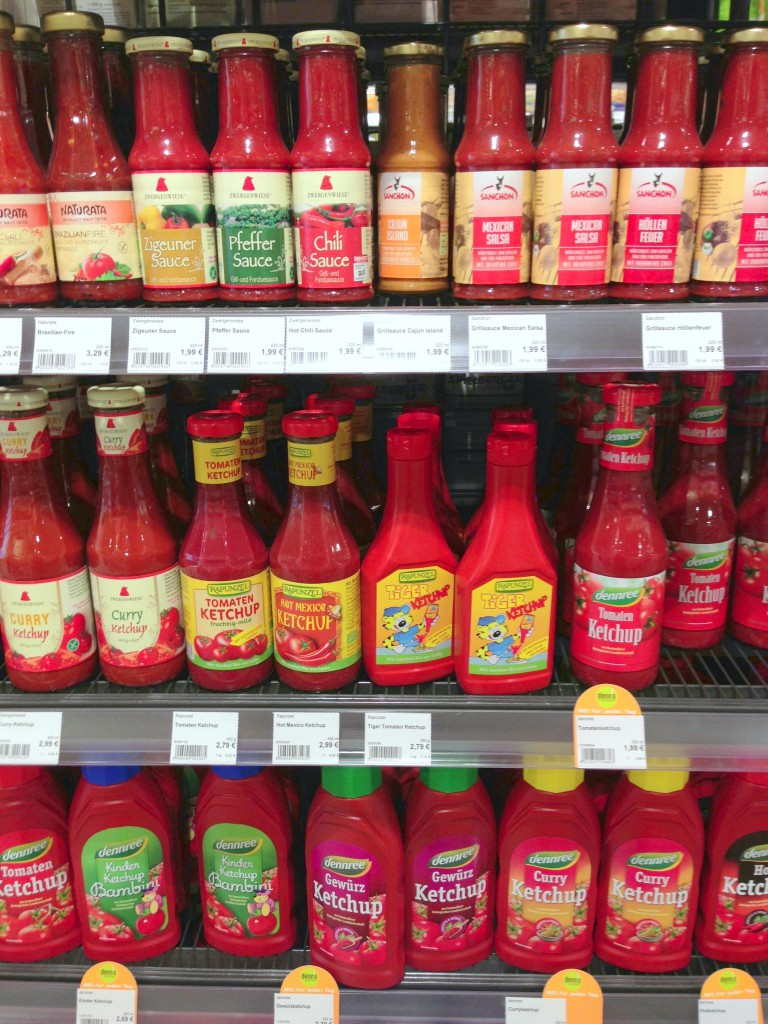
And, here comes my no-go-list, a list of fructose loaded foods to avoid with IBS. But of course I’m curious to know what’s on your no-go-list? How strictly do you watch out for fructose in your food?
Food I try to avoid rigorously
Onions
Tomatoes (in large amounts)
Wheat, meaning all sorts of pasta and bread
Corn (in large amounts)
Dressings
Mayonnaise
Ketchup
Peanuts (in large amounts)
Soy sauce
Pickles (like Cucumbers, they have tons of sugar in one glass)
Egg Plant (I noticed that I tolerate it in small amounts)
Bell Peppers (in large amounts)
Balsamico
Weird cheese spreads in “new” flavors
Cold cuts (if I want something meaty for my sandwich I’ll buy it straight from the butcher)
When I go out for lunch or dinner I always ask the waiter if the dish I chose contains onions or tomatoes. If so, I choose something else or ask it these ingredients could be left out. I also order my salads without dressing and ask for olive oil and lemon instead.
No Sweets for me (As mentioned above, sweets are an absolute no-go for me)
Chocolate
Ice cream
Sugar
Agavesyrup
Coconut sugar (in large amounts)
Honey
Jam
Chocolate spreads
Sweetened peanut butter
and the list goes on (this is a no-brainer)
The obvious no-no: Fruits
Grapes
Apples
Pears
Pineapple (in large amounts)
Cherries
Raisins, dates and whatever dried fruit there is (I tolerate small amounts of dried, unsweetened cranberries and apricots)
of course the list goes on, but I hope you get my point …
No drink for me:
Coke and other soft drinks
Juices
Fruit tea
Beer
Red Wine
Fruit or herbal schnapps / liquor / liqueur (like Jägermeister, Baileys, Ramazotti)
What I do drink boils down to water, water, water, herbal tea, coffee, a glass of white wine, prosecco or vodka soda (vodka with sparkling water) once in a while. Of course my tummy doesn’t really appreciate the intake of alcohol, but a moderate amount of drinks is usually fine.
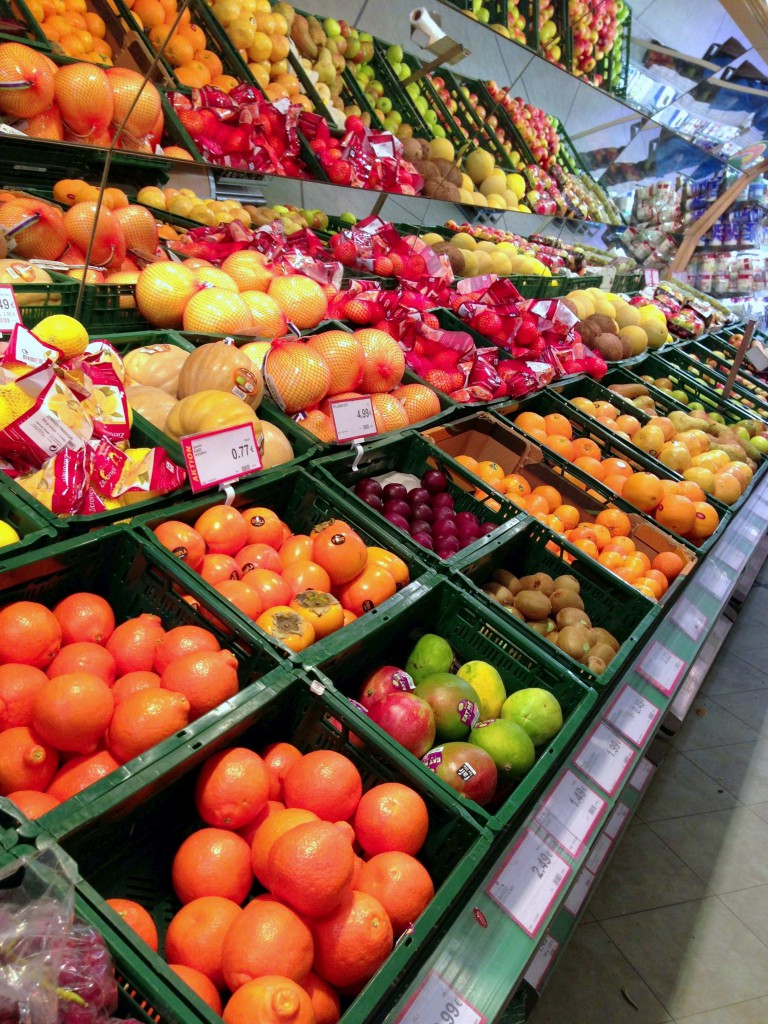
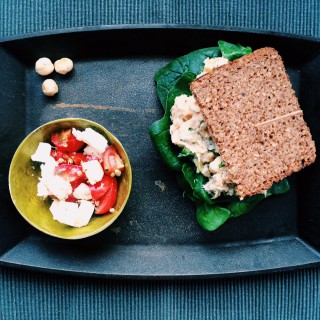
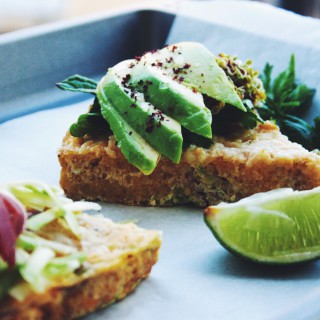
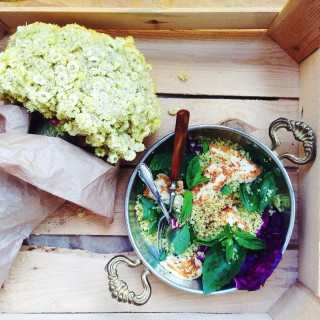
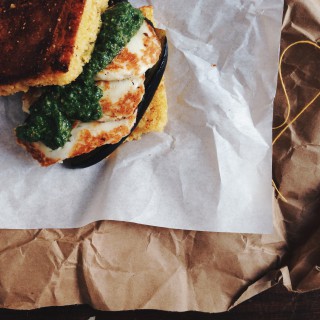
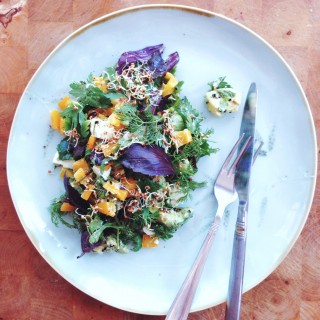
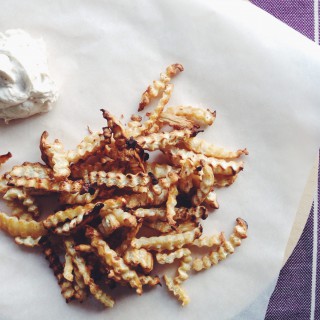
Das ist ein echt interessanter Beitrag! Auf Brot verzichte ich nicht, aber ansonsten trifft dein Einkaufsverhalten auch auf mich größtenteils zu. Bestimmte Regale kommen in meinem Bewusstsein auch gar nicht mehr vor: Marmeladenregal, Süßigkeiten, Softdrinks, … Da kann ich einfach dran vorbeigehen. Aber umso günstiger wird der Einkauf auch, weil ich dort gar nicht mehr in Versuchung geführt werden kann. 😉
Viele Grüße
Frau Fofftein
Hallo Frau Fofftein 🙂 Ich würdige besagten Regalen auch keines Blickes mehr. Ab und zu wenn ich im Bio-Markt bin studiere doch mal wieder die Etiketten von neuen Produkten, in der Hoffnung, dass da doch etwas verträgliches dabei bist. Aber meistens muss ich danach selbst über mich lachen. 🙂
Da es hier in der Türkei kein Dinkel gibt, esse ich hier fast nur pures Maisbrot, sofern ich denn eines finde. Ansonsten verzichte ich komplett auf Weizen. Das Weizen hier bekommt mir gar nicht gut.
Wie lange weißt Du denn schon von deiner Fructoseintoleranz?
liebe Grüße, Deniz
Ich weiß es jetzt seit fast einem Jahr.
Du hast so Recht Deniz! Viele “fructosarme” Rezepte enthalten viel mehr Fructose als ich vertrage und all diese Listen und Tabellen mit verbotenen und erlaubten Lebensmitteln sind fast nie zu gebrauchen. Hast du schon mal den fructosefreien und histaminarmen Fili-Secco von Frusano probiert? Ich vertrage ihn super und er ist eine tolle Alternative falls einmal mit Sekt angestoßen wird und er eignet sich wunderbar zum mixen z. B. mit Stevia Eistee 😉
Liebe Marie, schön, dass du schreibst. Den Fili-Secco hab ich tatsächlich noch nie probiert . Ich trinke aber manchmal Cremant. Der ist zwar etwas teurer als normaler Sekt, dafür darf soweit ich weiss kein Zucker zugesetzt werden. Sprich der Cremant enthält nur den Eigenzucker/Zuckeralkohole. Ich vertrag ihn glücklicherweise ganz. In Maßen versteht sich 🙂 Seit wann weisst du von deiner Fructoseinoleranz? An was für “Regeln” hälst du dich? Liebe Grüsse, Deniz
Liebe Deniz, den Cremant kenne ich noch gar nicht. Mir hilft es, mich immer an die Regel zu halten, Fructosehaltiges immer in Kombination mit Eiweiß und/oder Traubenzucker zu essen und natürlich so viel wie möglich selbst zu kochen oder backen. Außerdem halte ich mich hauptsächlich an Reisprodukte, die gehen fast immer. Leider passiert es mir 5 Jahre nach meiner Diagnose immer noch, dass ich etwas esse von dem ich eigentlich weiß, dass ich es nicht vertrage, es aber in dem Moment einfach sooooo gerne essen möchte. Das konsequente Weglassen fällt mir persönlich viel schwerer, als herauszufinden, was ich vertrage und was nicht. Aber dein Blog motiviert mich dranzubleiben und nicht aufzugeben 🙂
Danke für deine zauberhaften Worte! Und Du weisst gar nicht wie sehr mich solche Kommentare motivieren! 🙂
Dass du dran bleibst ist das wichtigste. Und wenn du dich nicht immer an die Regeln halten kannst, sind es sowieso nicht dir richtigen für dich 🙂 Ich bin mir sicher, das pendelt sich alles ein. Und außerdem verändert sich der Körper ja ständig. Das heisst, man sollte auch seine Regeln immer mal wieder hinterfragen. Und gerade wenn man im Urlaub ist oder vielleicht ein neues Restaurant testen möchte, ist es ja auch mal ganz schön die Regeln zu brechen. Wenn du wüsstest wieviel Obst ich in meinem letzten Urlaub gegessen habe, würdest du mir meine Fructoseintoleranz jedenfalls nicht abkaufen 😉
Liebe Denize,
also erstmal: vielen Dank für deine hilfreichen Beiträge!
Frage: 1.Was heißt du verträgst z.B. Mais in geringen Mengen – wie viel ist das zirka?
2. Sind Datteln auf der “nichtessenliste”?
3. Wie viele Milchprodukte bzw. Dinkelprodukte verträgst du in der Woche? Du scheinst hierbei nach einiger Zeit deine Meinung geändert zu haben…sprich Kohlenhydrate nur in “geringen” Mengen?
Vielen lieben Dank im Voraus!
HI Conny,
danke für deine Nachricht.
zu 1. Mittlerweile vertrage ich in etwa 1 Maiskolben oder auch 1-2 Portionen Polenta. Natürlich nicht dreimal am Tag 😉
zu 2. Ganz genau. Dieser Beitrag behandelt allein die No-Gos. Alles, was ich esse findest du im Beitrag davor.
zu 3. Stimmt. Der Körper verändert sich mit der Zeit, damit auch die Bedürfnisse. Auch das Toleranzlevel variiert je nach Lebenssituation und hängt auch immer davon ab wie gut man auf sich aufpasst. Ich verzichte nach wie vor strikt auf Weizen und Süssigkeiten, dadurch vertrage ich mittlerweile wieder einige Gemüse- und Obstsorten in gemässigten Portionen. Auf Dinkel verzichte ich auch mehr und mehr. Sobald ich drei mal die Woche Dinkel esse, merke ich wie ich aufgebläht und müde werde. Mittlerweile gibt es Dinkel vielleicht alle zwei Wochen mal. Oder in seltenen Fällen auch mal eine Scheibe gutes Sauerteigbrot.
Ich hoffe das hilft dir schonmal. Was sind denn deine größten Herausforderungen momentan?
Liebste Grüße, Deniz
Hallo,
normalerweise schrebe ich selten in Foren oder ähnliches. Aber auch muss mir mal den Frust weggschreiben. Seit über 3 Jahren leide ich an einer Fructoseintoleranz, obwohl ich die Diagnose erst seit letztem Jahr habe, da mir kein Arzt geholfen hat und mich für Einbildungskrank gehalten hat. Es ist schon deprimierend wenn einem nicht geholfen wird und die Meinung über Ärzte hat sich seitdem auch verändert. In 3 Jahren 2xmal Magen-/ und Darmspiegelung, Selbstbluttest, Allerloge, Gastroentrologen, Hausärtze bis endlich einer auf die Idee mit dem Atemtest gekommen ist.
Dieser war dann auch ziemlich eindeutig höchster Wert war 40 (ich weiß es kann noch schlimmer sein). Naja aber auch danach stand ich allein dort, wußte gar nicht mehr was ich essen soll. Nur glutenfrei, keine Früchte, kein Gemüse, kein Zucker, nichts mehr funktionierte. Auch vor dem Test war es ein Martyrium, von Gewichtsverlust und Brechanfällen, Verstopfung etc.
Im Januar erfolgte der Gang zum nächsten Allerlogen, weil die Beschwerden nicht besser wurden und ich nach wie vor an Gewicht verloren habe. Dieser konnte mir auch nicht helfen, war aber wenigstens ehrlich und hat mich Ernährungsberatung verwiesen. Diese war auch wirklich kompetent und hat in vielen Dingen geholfen.
Ich kann einigermaßen wieder normales Brot essen, nichts mit Körner oder vielen Ballaststoffen, aber zumindest kann ich das glutenfreie Brot weglassen. Auch Haushaltszucker funktioniert in Maßen, Früchte geht gar nicht, Gemüse auch hin und wieder mal, Kartoffeln.
Die Tage habe ich Kartoffelchips nur gesalzen von FunnyFrisch gegessen und es war wieder eine Tortur von Blähungen und Übelkeit. Ist das normal, das man immer Rückschläge hat, an manchen Tagen gehts mir gut und dann kommt wieder so eine furchtbare Verstopfung oder leichte Durchfälle und Brechreiz. Warum funtionieren Kartoffeln aber keine Chips, auch bei anderen Lebensmittel zweifel ich wieder, ganz besonders bei Brot. Bei Salat und Rohkost habe ich auch so meine Probleme. Ist das alles normal? Nach 3,5 Jahren verzweifelt man einfach, auch wenn man zwischendurch mal ein paar Hochs hatte, ist es doch in der Summe einfach nur fruchtbar. Ich weiß es gibt Schlimmeres, aber man möchte das Leben einfach nur genießen, aber das kann ich einfach nicht immer.
Lieber Thomas, danke, dass du geschrieben hast! Manchmal muss man einfach genau das tun: Seinen Frust wegschreiben. Vor allem wenn man so eine Odyssee wie deine hinter sich hat! Erstmal ist es mir nach wie vor ein Rätsel wie man so allein gelassen und nicht ernst genommen wird von den Ärzten. Das kann nicht angehen! Mittlerweile müssen die doch verstanden haben, dass unsere Ernährung einen extremen Einfluss auf uns hat und zum Glück gibt es auch noch gute Tests dazu. Zu deiner Verunsicherung und Verzweiflung mit den Rückschlägen kann ich tatsächlich sagen: Ja, die sind Teil der Reise. Und zwar ein ganz wichtiger. Unser Körper ist wahnsinnig intelligent und wenn man lange Zeit nicht auf ihn und seine Signale gehört hat, meckert er eben so lange bis man herausgefunden hat, was ihm gut tut. Ärger dich also nicht, sondern sieh es als Chance an, die Dinge zum positiven zu ändern. Hinzu kommt, dass der Körper sich allgemein verändert. Ich passe jedes Jahr ein bisschen an, was und wie ich esse, selbst saisonal ändern sie die Bedürfnisse des Körpers und bei Frauen sogar 4 Mal im Monat während des Zykluses. Es gibt eben kein “one size fits all” und auch keine magische Rezeptur. Was zählt ist, dass wir aufmerksam sind und mit Bedacht essen. Bei vielen Lebensmitteln kommt es zudem darauf an, wie sie verarbeitet werden. Das Beispiel der Kartoffeln zeigt das ganz schön. Es kann natürlich an vielen anderen Dingen liegen, wenn man sich aber mal alleine überlegt, wie man die unterschiedlichen Formen verzehrt, muss man einfach ehrlich mit sich sein und sich fragen, ist das wirklich gut? Kartoffeln dürfen wässern und kochen. Man isst sie meist in Kombination mit Proteinen und Gemüse. Frittierte Chips bringen viel zu viel “schlechtes” Öl mit sich und meist ist man sie wenn man eigentlich schon statt ist, unbedacht und viel u viel (zumindest bei mir 😀 ). In zwei Punkten bin ich sehr streng mit mir: Haushaltszucker und Weizen. Seitdem ich beides konsequent weglasse, vertrag ich deutlich mehr Gemüse und Obst. Und das ist mir der “Verzicht” absolut wert. Vielleicht hat deine Ernährungsberaterin ein paar Tipps wie du noch etwas weiter experimentieren kannst oder welche Lebensmittel noch Übeltäter sein könnten. Ich hab für mich z.B. Kaffee identifiziert und versuche es gerade mit Magnesium gegen die Verstopfungen. Es gibt einfach unendlich viele kleine Stellschrauben an denen wir drehen können. Ich schick dir viel Energie und hoffe es geht dir bald besser. Meld dich gerne bei Fragen! Deniz
Hallo Deniz,
vielen Dank für Deinen Kommentar. Da hätte ich gerade noch eine Frage mit Magnesium. Ich leide leider auch unter permanter Verstopfung, wie funktioniert das mit dem Magnesium bzw. in welcher Forum und Menge nimmst Du diesen zu Dir?
Danke für eine Antwort.
Grüße
Thomas
Hi Deniz, first of all, great website. It is quite a good one (and I’ve been roaming around tons of websites about fructose malabsorbtion).
I was diagnosed 2 years ago, right before a year-long backpacking trip. So I tried to avoid highly processed things and fruits, but I didn’t take too much care, as eating is one of the main reasons I travel. Now I am back in beautiful Berlin as well, and I have been trying to look a bit more at what I eat. Funny enough, now my symptoms seem to be worse… I also have some discomfort on my liver (tested it and the Doctor says it’s all good… but I still feel something weird) and my moods are swinging like hell. Both things I’ve read that can be caused for fructose malabsortion. Funny enough, I’ve been told by my doctor that, even though I am diagnosed with this, the krankenkasse doesn’t cover a nutritionist or dietitian…, so I am trying to find more info and try to cut even more things out of my diet.
So, now to my questions. I have a couple of them, and I was hoping you could give me your input.
1. I was looking at beans, lentils and chick-peas as substitutes for pasta/rice, as they contain less carbs and more fibre (which I kind of need). However, I don’t see them listed on the good or bad things to eat. And of course, a google will give you 10 pages that say that are ok, and another 10 that say they are bigs no-go food… What’s your take on these ones?
2. Non-alcoholic beer. Ok, I admit it, I have drunk alcohol (just beer and red wine). Now I think I am going to try to go alcohol-free for a while and see how my stomach behave. The issue here is that you are left without options when you go out. Soft drinks are a big no-go of course. I don’t like strong alcohols (and you drink them quick anyway). I do like non-alcoholic beer though, but not sure how well does that go. What’s your take on that?
Such a pity your cookbook is only in German… although maybe in a year I might be able to read it. Ich spreche schon ein bisschen Deutsch 😀
Grüße
Jesús